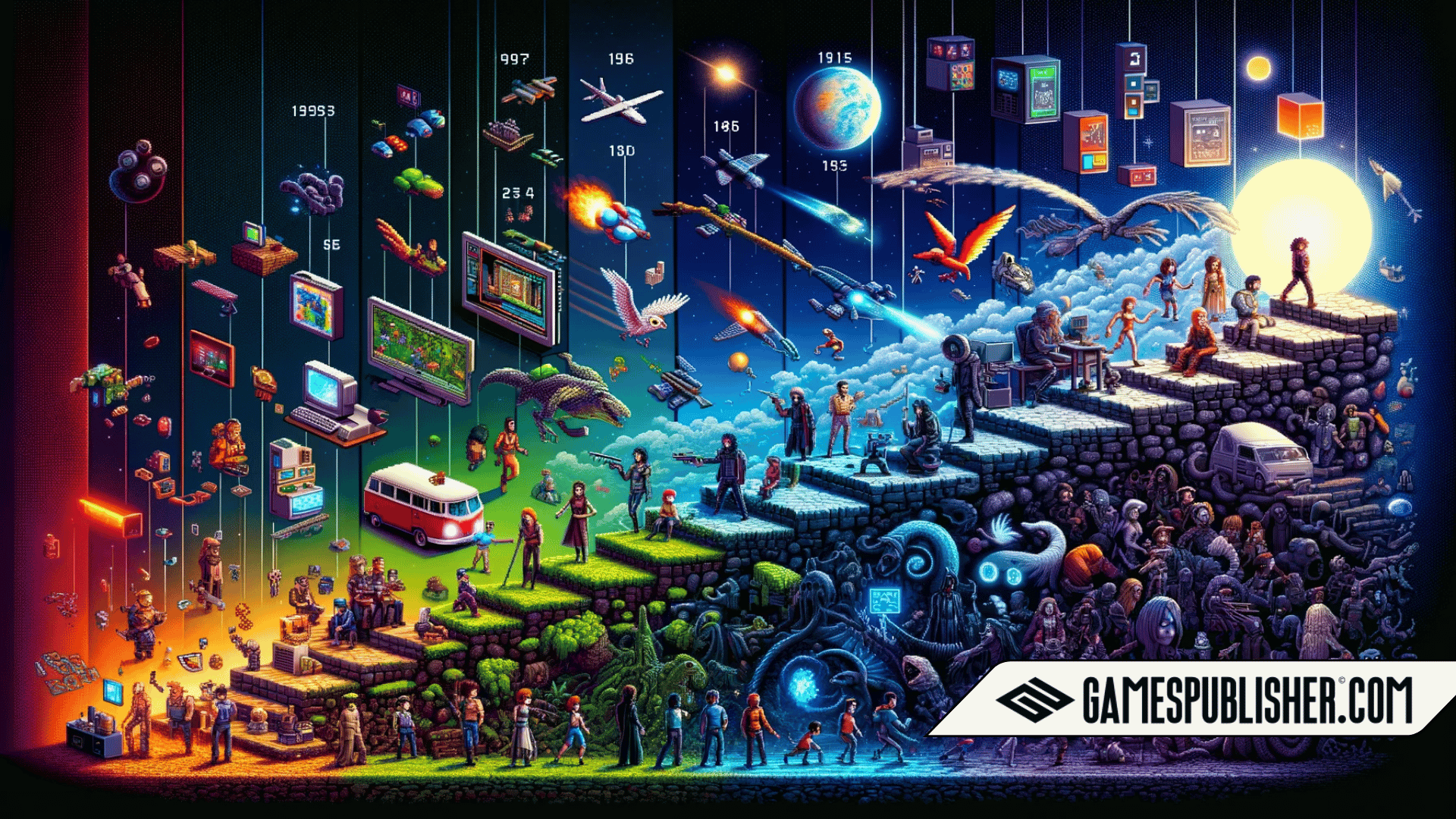The world of indie gaming has emerged as a crucial facet of the broader video game industry, embodying a dynamic, evolving landscape that challenges norms and fosters innovation. Indie gaming’s trajectory has shown its resilience and adaptability, carving a distinct space amidst an industry dominated by large-scale publishers.
The contributions of indie developers have enriched the gaming ecosystem, offering unique narratives, diverse gameplay mechanics, and groundbreaking storytelling methods.
For an in-depth look at these developments, resources like “Gamespublisher.com” provide invaluable insights into the multifaceted realm of game development and publishing.
an important Knowledge for developers
Understanding the evolution of indie gaming is essential for developers, publishers, and gamers alike. This knowledge illuminates the impact of indie games on market trends, creative innovation, and gaming culture at large.
Indie gaming has influenced mainstream gaming through its imaginative approaches, diverse narratives, and alternative business models, shaping the industry’s trajectory and offering a counterbalance to traditional AAA titles.
Historical Overview
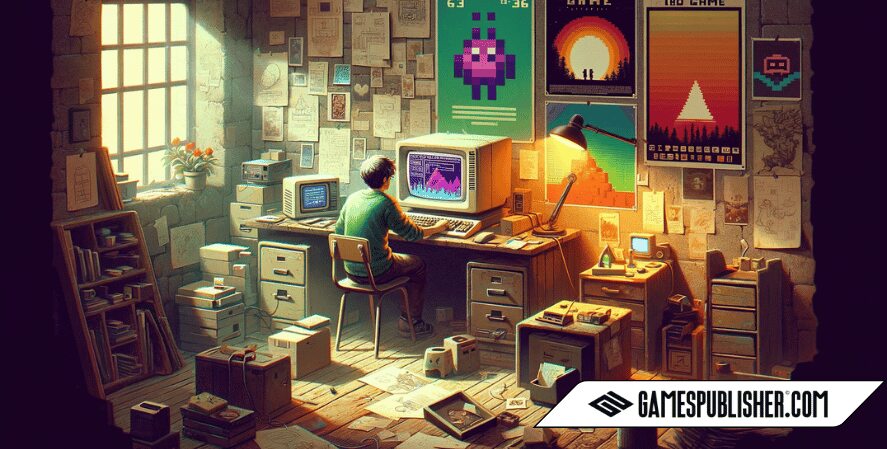
Early Beginnings
The roots of indie gaming stretch back to a time when developers operated without major publisher backing, forging their own paths through creativity and innovation. Early indie games stood out for their originality and resourcefulness, filling a niche left open by larger game studios.
The emergence of home computers in the 1980s, alongside platforms like Commodore 64 and ZX Spectrum, provided an early foothold for indie developers, allowing them to create and distribute games on a small scale.
Milestones
Indie gaming’s journey has been marked by significant milestones. The release of iconic titles like “Braid,” “Super Meat Boy,” and “Undertale” showcased the power of indie games to captivate audiences and make substantial cultural impacts.
The establishment of indie game festivals and awards, such as the Independent Games Festival and BAFTA Games Awards, has provided recognition for indie developers, highlighting their contributions and celebrating their achievements.
Technological Advancements
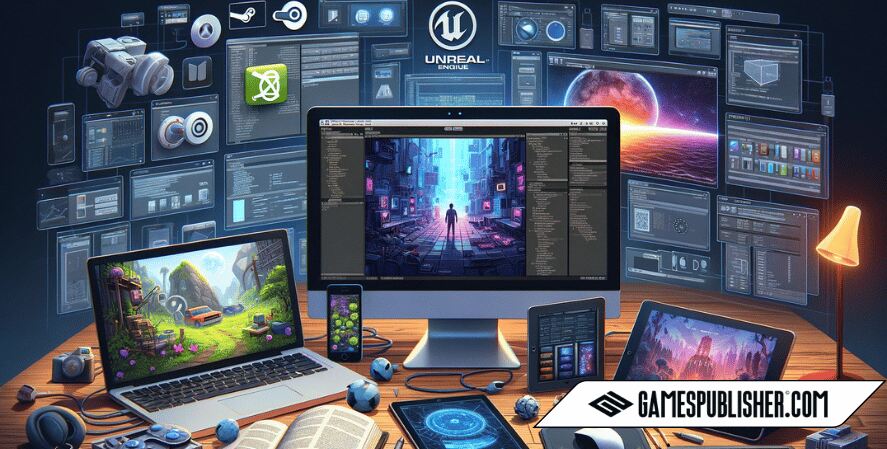
Game Development Tools
The advent of accessible game development platforms like Unity and Unreal Engine has revolutionized indie game development.
These tools offer intuitive interfaces, extensive documentation, and supportive communities, empowering indie developers to bring their visions to life.
Unity’s cross-platform capabilities and Unreal Engine’s powerful rendering features have enabled indie developers to create games that rival AAA titles in quality and scope.
Digital Distribution
Digital distribution platforms have further accelerated the indie game industry’s growth. Platforms like Steam, itch.io, and the App Store have democratized access to the gaming market, allowing indie developers to distribute their creations directly to players.
Steam’s Greenlight and Early Access programs have also enabled indie games to gain traction before full release, fostering a direct relationship between developers and their audience.
Cultural Impact

Community Building
Indie games have fostered a vibrant community of developers and players who value artistic expression and storytelling.
Communities around games like “Celeste” and “Hades” have grown, connecting gamers and creators through shared appreciation for compelling narratives, challenging mechanics, and innovative gameplay.
Indie developers often interact directly with their fanbase, nurturing a supportive ecosystem that thrives on feedback and collaboration.
Diversity and Representation
Indie games have been at the forefront of promoting diversity in game characters and narratives.
Titles like “Gone Home,” “Night in the Woods,” and “Gris” have tackled complex themes, including mental health, identity, and societal issues, enriching gaming’s cultural tapestry.
This diversity has broadened gaming’s appeal, attracting a more inclusive audience and demonstrating the medium’s potential for meaningful storytelling.
Economic Influence
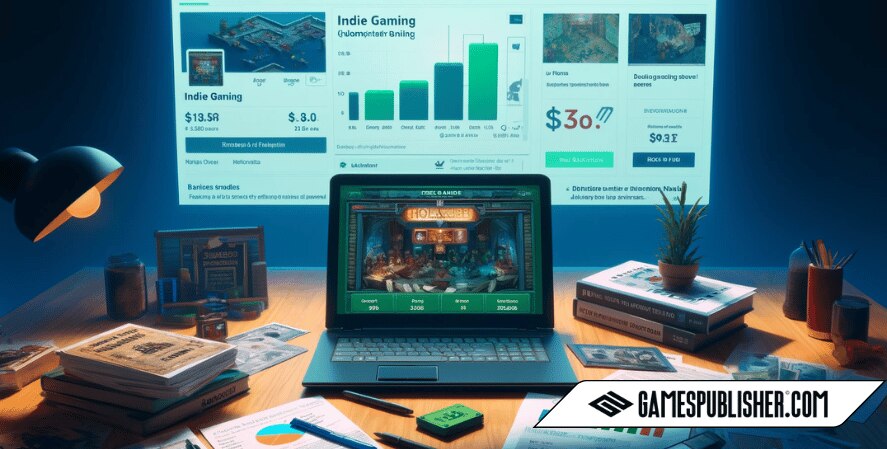
Business Models
Indie developers have adopted various business models, from freemium to one-time purchases, influencing industry practices. The flexibility of indie developers has led to creative monetization strategies, such as episodic releases and in-game purchases.
These models have provided sustainable revenue streams, ensuring the survival and success of many indie games, while also shaping how larger publishers approach their business strategies.
Crowdfunding Success
Crowdfunding campaigns have revolutionized the financial landscape for indie developers. Platforms like Kickstarter and Indiegogo have enabled developers to secure funding directly from their audience, reducing reliance on traditional publishers.
Successful campaigns for games like “Shovel Knight” and “Hollow Knight” have demonstrated the potential of crowdfunding, empowering developers to retain creative control and bring their visions to life.
Future Trends
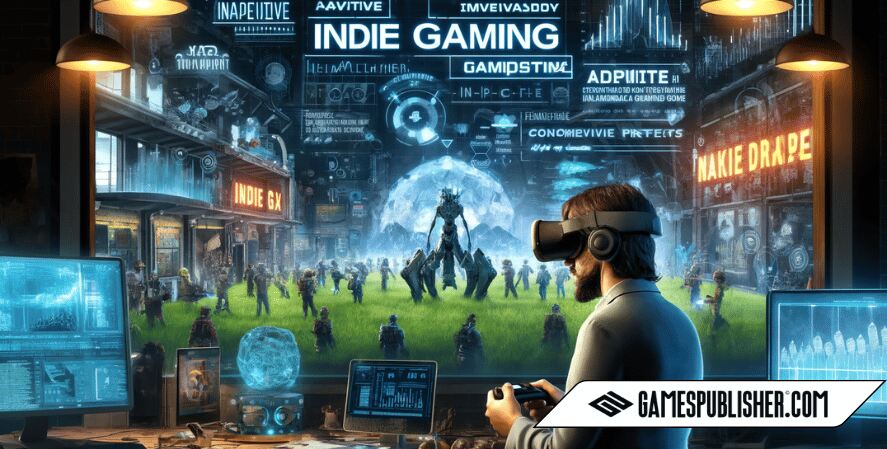
Innovative Trends
The future of indie gaming promises continued innovation. The integration of AI and VR technologies could redefine game experiences, allowing for dynamic storytelling, adaptive gameplay, and immersive worlds.
Indie developers are poised to explore these technologies, crafting unique experiences that push the boundaries of gaming.
Challenges and Opportunities
Indie developers face challenges such as market saturation and stiff competition from AAA titles. However, evolving consumer preferences, including the demand for diverse narratives and innovative gameplay mechanics, offer opportunities for indie developers to thrive.
By staying true to their creative visions and embracing new technologies, indie developers can navigate these challenges and continue to shape the industry.
Conclusion
Indie gaming has had a profound impact on the video game industry, from its early beginnings to its present-day status as a driving force for creativity and innovation.
The growth of indie gaming has been marked by significant milestones, technological advancements, cultural influences, and economic shifts. Its future promises continued innovation, despite challenges, with indie developers poised to explore new trends and opportunities.
To appreciate the value of indie gaming and support its community, readers are encouraged to engage with indie games. Whether through playing, developing, or sharing them, supporting indie gaming helps sustain this vital part of the industry, ensuring its continued evolution and impact.
Loading survey...

